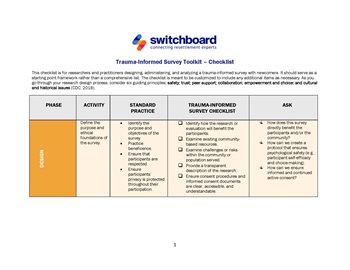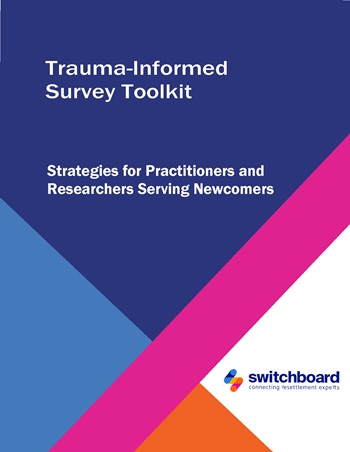Two impact and three suggestive studies indicate positive outcomes from strengths-based approaches.
Five studies were identified that have examined the outcomes of strengths-based approaches with refugee clients. These studies have addressed diverse outcomes including health, mental health, social support, English proficiency, and cultural and community connections.
Strengths-based approaches can take many forms and have shown promising results with newcomers of diverse genders, ages, national origins, and ethnicities.
One source of strong evidence, and three moderate to suggestive studies, indicate positive outcomes for trauma-informed programming with newcomers.
One systematic review, one randomized control trial, and two suggestive studies of trauma-informed programs for newcomers saw positive outcomes on almost all measures. Topics included education, parenting, and mental health.
Important elements of trauma-informed approaches include using facilitators with lived experience, facilitating peer support, transparency and trustworthiness of staff, and participant control of conversations.
Three sources of suggestive evidence indicate training providers in trauma-informed practice can increase the confidence of providers and help newcomers feel safe.
Providers reported increased knowledge of trauma in newcomer contexts and confidence in working with clients who have faced trauma after receiving training on trauma-informed approaches.
Studies that looked at client outcomes also indicated positive outcomes in areas of safety and security.




